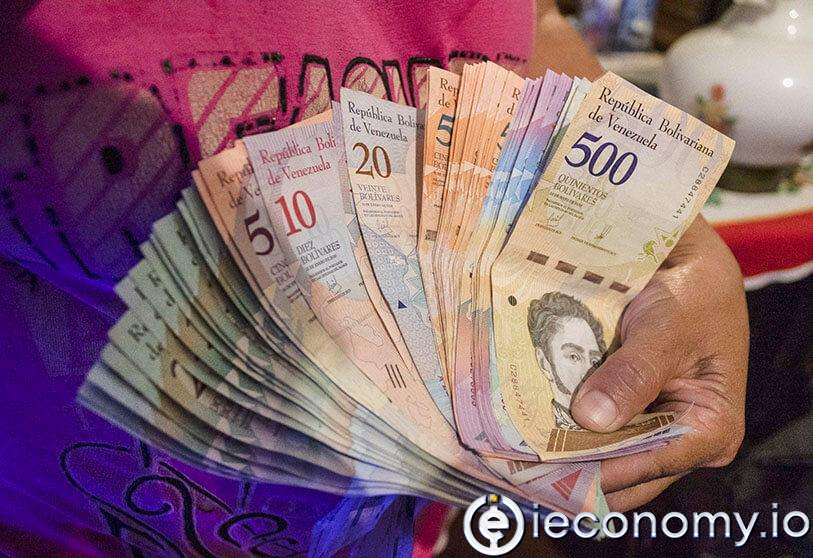Venezuela has removed 6 zeros from its currency, the bolivar
In Venezuela, which has the highest inflation in the world, it was decided to remove six zeros from its currency, the bolivar...

Yayınlanma: 24 Aralık 2021 20:02
Güncellenme: 15 Şubat 2026 00:36
Until now, 1 million bolivars was the largest banknote on the market. As of yesterday, 4 million bolivars were equivalent to 1 dollar. In the new version of the bolivar, the largest banknote will be 100 bolivars. This will be traded at $25 in the first place.
This means that the bolivar's value against foreign currencies will not change. It is stated that the main goal of the six-zero change is to simplify calculations in excess zero cash transactions and bookkeeping.
Jose Guerra, professor of economics at the Central University of Venezuela, said, "The most important and fundamental reason for this change is the collapse of payment systems. Because the excess number of digits both made payment systems dysfunctional and made it practically impossible to make transactions, bank card payment or accounting systems for companies. It was designed for a normal economy, not for hyperinflation," and added that there will be no loss of value between the old bolivar and the new one.
A bottle of soda costs 8 million bolivars
In the old currency, it was necessary to pay 8 million bolivars to buy a bottle of soda. This caused people to shop with lots of money and to have great difficulties with payments.
Banks, on the other hand, allowed customers to withdraw up to 20 million bolivars of cash per day. When there was a shortage of cash, this limit was lowered even more.
For this reason, consumers have recently started to turn to US dollars or digital payment methods such as PayPal. Guerra states that 60 percent of transactions in the country are made in US dollars.
The zeros are removed for the third time
The method of removing zeros from the bolivar has been used before in Venezuela. In 2008, the late President Hugo Chavez deleted three zeros, and his successor, Nicolas Maduro, removed five zeros in 2018.
Due to the hyperinflation that has been going on for more than four years, the Central Bank no longer publishes inflation statistics. The International Monetary Fund (IMF) estimates Venezuela's inflation rate by the end of 2021 to be 5,500 percent.
Maduro's government tried two years ago to restrict dollar-denominated transactions in favor of the local currency, but this policy was shelved due to further inflation. A US currency is introduced into the country, where the use of the dollar is rapidly increasing, by a network of foreign bank account holders or Venezuelans bringing cash from abroad.
Before the zero-removal decision, prices were starting to be written in old and new bolivars and dollars on the labels. Banks announced that they will freeze operations for a few hours on Thursday and Friday so that the necessary adjustments can be made for the change.




